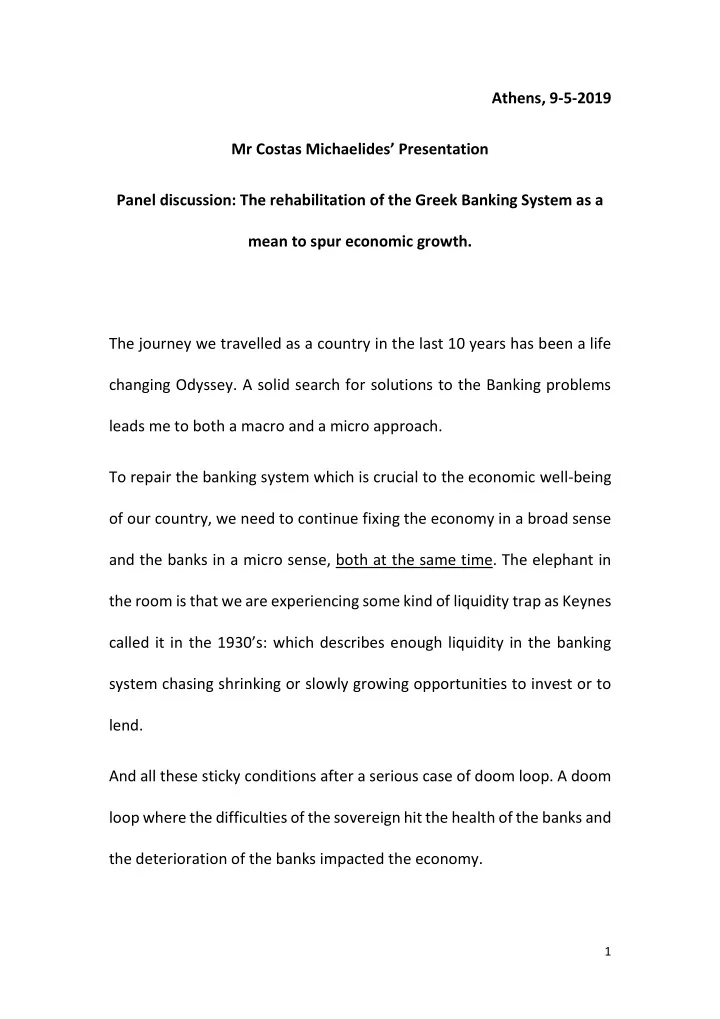

Athens, 9-5-2019 Mr Costas Michaelides’ Presentation Panel discussion: The rehabilitation of the Greek Banking System as a mean to spur economic growth. The journey we travelled as a country in the last 10 years has been a life changing Odyssey. A solid search for solutions to the Banking problems leads me to both a macro and a micro approach. To repair the banking system which is crucial to the economic well-being of our country, we need to continue fixing the economy in a broad sense and the banks in a micro sense, both at the same time. The elephant in the room is that we are experiencing some kind of liquidity trap as Keynes called it in the 1930’s: which describes enough liquidity in the banking system chasing shrinking or slowly growing opportunities to invest or to lend. And all these sticky conditions after a serious case of doom loop. A doom loop where the difficulties of the sovereign hit the health of the banks and the deterioration of the banks impacted the economy. 1
To fix the Greek economy, many wise economists, including our Central Bank, propose five cures for sustainable growth: (1) Continue structural reforms to improve further public sector effectiveness. (2) Address taxation policies to create private sector incentives. (3) Establish stronger mechanisms to attract more significant foreign investments. (4) Strengthen the knowledge triangle between education, research, and innovation to enhance private sector and university collaboration. (5) Reduce the non-performing loans to allow the banks to make more performing loans. To fix the Banks, we also need a serious transformation program to repair the ways the Banks do things and the ways they think about themselves. The exam question is not do more of what the banks were called to do in the past but find out who they are called to become and what they should do in the future. For this exam question, we need more principled leadership and more Darwinian institutional machinery. Both are necessary for survival and prosperity. 2
Both are necessary so that Banks think more courageously outside the box about the existential challenges of: - what does bank mean in the year 2025 in the face of tech giants, - how do banks grow leaders that worry about the balance between growth and social inclusion, - how they are closely interwoven in a changing social and political world while they maintain their governance, - how they create leaders who are trained to ask “what if” questions within systemic values, - how they transform themselves and their institutions to survive in an adoptable Darwinian style. So, Banks need transformation. From my experience, a transformation to succeed needs: A vision, a shared vision. Rules to be respected to create mutual trust. Deeply shared values. 3
A strong purpose. Institutional machinery necessary for delivery. Alignment between vision, values, culture, brand, strategy, and governance. Finally, in our Greek context, and to succeed in fixing both macro and micro issues, it would be good to consider more HFSF leadership helping with its industry knowledge and a willingness to induce further systemic collaboration. At the same time, our Hellenic Banking Association is creating and pursuing a strategic narrative to be enriched by the challenging material created in the Association’s committees. The strategic narrative and the work of the committees will contribute dynamically and inspire more collaboration between banks as appropriate. 4
5
Recommend
More recommend